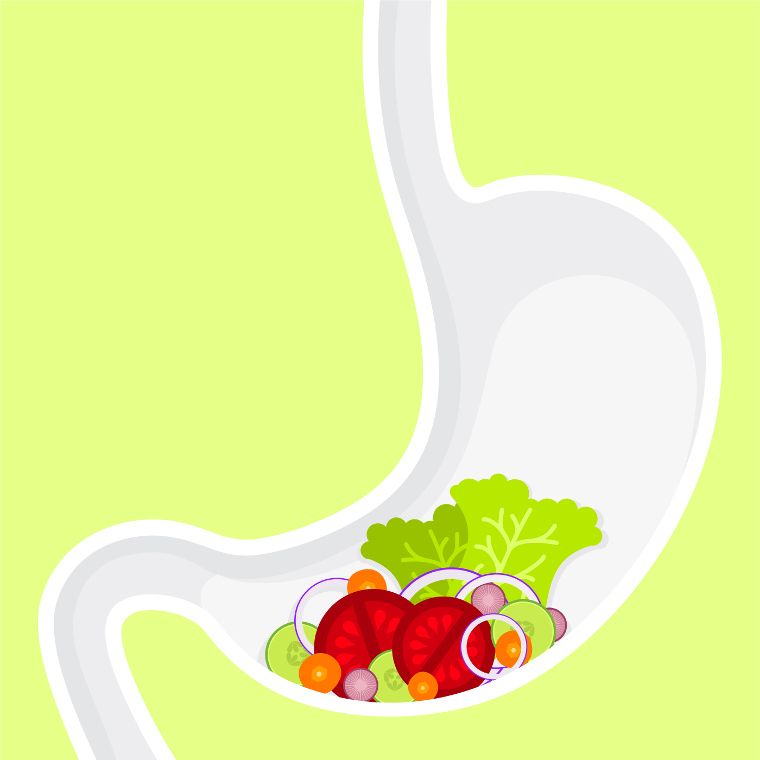Digestive Enzyme Supplements Will See Strong Growth through 2025. Deerland Enzymes Talks about What’s Driving Growth.
Following a recent report predicting 6.9% CAGR for global digestive enzyme supplements through 2025, Nutritional Outlook spoke to enzymes supplier Deerland Enzymes about what’s driving that growth.
Photo © iStockphoto.com/myillo

The digestive enzymes supplements market should see strong global growth through 2025, according to a new report from market researcher Credence Research Inc. The report predicts that the global digestive enzymes supplements market will grow at a CAGR of 6.9% from 2017 to 2025, reaching $1.6 billion. Nutritional Outlook interviewed supplier Deerland Enzymes (Kennesaw, GA) about what’s driving that growth.
Credence Research cites two primary market forces driving enzyme-supplement growth: 1) a rising prevalence, globally, of gastrointestinal complications, and 2) an increasing focus and awareness of digestive health driven by categories such as probiotics and prebiotics as well. Tod Burgess, vice president of sales at Deerland Enzymes, confirms these drivers. His company’s Deerland Probiotics division also serves the probiotics sector of the market.
Burgess notes the growing awareness among consumers about digestive health in general, driven by the discomfort many experience due to increased consumption of fast food, preservatives, artificial sweeteners, and sugars in many diets that can negatively affect the microbiome. The Credence report states that Asia Pacific will be the fastest-growing audience for enzyme supplements due to an aging population suffering from digestive complications, which are also linked to a regional preference for oily and spicy food. Burgess highlights the “healthy aging” market as a key driver for enzymes “because our bodies’ natural ability to produce digestive enzymes declines as we age.”
More customers are also seeking out digestive enzymes to deal with various food sensitivities. Gluten is the perfect example, Burgess says, noting that many of Deerland’s customers are focusing on developing products for consumers with gluten sensitivities. This includes the company’s Glutalytic ingredient, which features both endo- and exopeptidases to break gluten proteins down more efficiently. In addition, he says, Glutalytic can break down “competing proteins” in a gluten-containing meal, such as protein from milk, nuts, fish, and soy. (The company markets Glutalytic for handling accidental gluten consumption and stresses that it should not be considered a replacement for a gluten-free diet.)
Another target for digestive enzymes is lactose intolerance. Interestingly, Burgess points out, the discomfort some consumers experience after consuming dairy products may not be due to lactose intolerance but instead might be due to a sensitivity to the “protein components of dairy.” In fact, he says, these consumers may find themselves wondering why a traditional lactase enzyme supplement does not seem to help their symptoms, not realizing that they aren’t experiencing classic lactose intolerance. He points out that Deerland offers an ingredient called Dairylytic that helps these consumers because it contains not only lactase but also a protease enzyme blend that can help break down some of the other protein components consumers might be sensitive to.
The Credence Research report also notes growing activity for enzyme supplements in markets related to digestive health, such as sports nutrition. In fact, the report states, the “sports segment will be the fastest-growing segment through the forecast period 2017-2025 due to the factors such as increased consumption by athletes, bodybuilders, and fitness enthusiasts.” Burgess agrees that this is a growing market for digestive enzymes, most notably because of the digestive discomfort many athletes experience after consuming high amounts of protein. He notes that Deerland’s ProHydrolase ingredient has been shown in two human clinical studies to break protein down into smaller peptides so that the body can use it more efficiently for functions such as muscle recovery, while also reducing digestive discomfort associated with consuming large amounts of protein. Burgess says ProHydrolase is effective for digesting whey protein as well as other types of protein like soy, casein, hemp, and pea.
Another market where interest in enzyme supplements continues to grow is the animal-supplements market. Burgess notes that digestive health is one of the fastest-growing segments of the animal-supplements market, creating opportunities for enzymes, probiotics, and prebiotics alike. He says that, compared to the human-supplements market, the digestive health end of the animal-supplements market is still in its “infancy” and thus presents lots of opportunity for growth and innovation. He also points out that in addition to standard powder supplements, formulators are also looking to incorporate enzyme and probiotic blends in pet treats.
Prinova acquires Aplinova to further increase its footprint in Latin America
April 7th 2025Prinova has recently announced the acquisition of Brazilian ingredients distributor Aplinova, which is a provider of specialty ingredients for a range of market segments that include food, beverage, supplements, and personal care.










